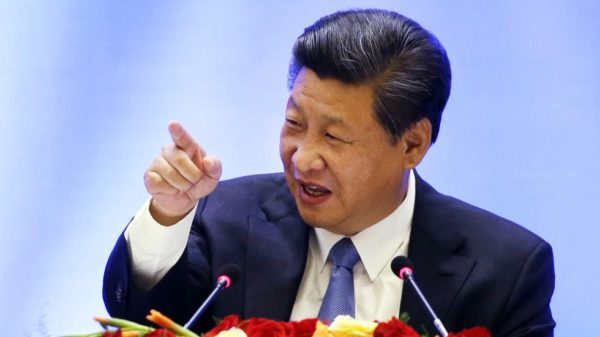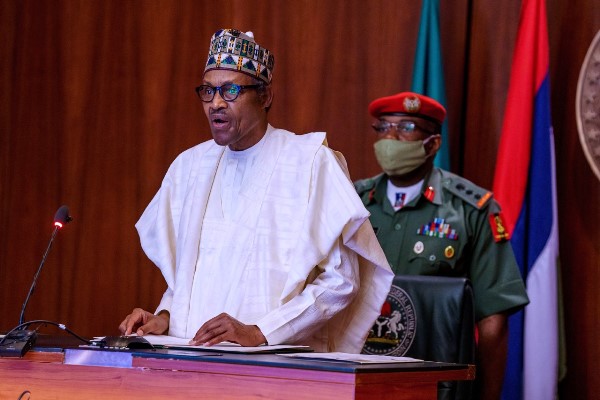

DEBT MANAGEMENT OFFICE
NIGERIA
FACTS ABOUT CHINESE LOANS TO NIGERIA
The attention of the Debt Management Office (DMO), has been drawn to statements and reports credited to several persons on the subject of Loans obtained from China and has considered it necessary to provide a sequel to its Press Release on the same subject dated September 11, 2018.
The general public is encouraged to be guided by the facts in this Press Release.
How Much Loan has Nigeria Taken from China?
As at March 31, 2020, the Total Borrowing by Nigeria from China was USD3.121 billion. This amount represents only 3.94% of Nigeria’s Total
Public Debt of USD79.303 billion as at March 31, 2020. Similarly, in terms of external sources of funds, Loans from China accounted for 11.28%
of the External Debt Stock of USD27.67 billion at the same date. These data, show that China is not a major source of funding for the Nigerian
Government.
What are the Terms of the Loans from China?
The Total Borrowing from China of USD3.121 billion as at March 31, 2020, are concessional Loans with Interest Rates of 2.50% p.a., Tenor of Twenty (20) years and Grace Period (Moratorium) of Seven (7) years. The Terms and other details of the Loan are available at http://www.dmo.gov.ng./
These Terms are compliant with the provisions of Section 41 (1a) of the Fiscal Responsibility Act, 2007. In addition, the low interest rate reduces the Interest Cost to Government while the long tenor enables the repayment of the principal sum of the Loans over many years. These two benefits, make the provisions for Debt Service in the
Annual Budget lower than they would otherwise have been if the Loans were on commercial terms.
*What Were the Loans Used For?
The USD3.121 billion Loans are project-tied Loans. The projects, (eleven – 11 in number as at March 31, 2020), include: Nigerian Railway Modernization Project (Idu-Kaduna section), Abuja Light Rail Project, Nigerian Four Airport Terminals Expansion Project
2(Abuja, Kano, Lagos and Port Harcourt), Nigerian Railway Modernization Project (Lagos-Ibadan section) and Rehabilitation and Upgrading of Abuja – Keffi- Makurdi Road Project.
See a Full List of the Projects at http://www.dmo.gov.ng./
The impact of these Loans is not only evident but visible.
For instance, the Idu – Kaduna Rail Line has become a major source of transportation between Abuja and Kaduna. Also, the new International Airport in Abuja, has improved air transportation for the populace,
while the Lagos – Ibadan rail line when completed, will ease traffic on the busy Lagos -Ibadan Expressway.
The projects also have the added benefits of job creation, not only by themselves but through direct and indirect service providers, a number of which are Small and Medium Enterprises. It is widely accepted that investment in infrastructure is one of the most effective tools for countries to achieve economic growth and development. Using Loans from China to finance infrastructure is thus in alignment with this position.
What Is the Process by which the Loans were Obtained?
The principal process and requirements for borrowing by the Government are expressly stated in the Debt Management Office Establishment (ETC) Act, 2003 (DMO Act) and the Fiscal Responsibility Act, 2007. Section 21 (1) of the DMO Act, “No External loan shall be approved or obtained by the Minister unless its terms and conditions shall have been laid before the National Assembly and approved by its resolution” and Section 41 (1a) of the FRA, “Government at all tiers shall only borrow for capital expenditure and human development, provided that, such borrowing shall be on concessional terms with low interest rate and with a reasonable long amortization period subject to the approval of the appropriate legislative body where necessary”, are instructive in this regard.
For detailed information on the borrowing process and required approvals please go to “External and Domestic Borrowing Guidelines for Federal Government, State
Government and the Federal Capital Territory and their Agencies” at
http://www.dmo.gov.ng/publications/other-publications/borrowing-guidelines
Summary
To summarise, the Federal Ministry of Finance, Budget and National Planning works with the MDAs under whose portfolio a proposed loan falls and also with the DMO. Thereafter, the approval of the Federal Executive Council (FEC) is sought.
It is only after the approval by FEC that His Excellency requests for the approval of the National Assembly (NASS) as required by Section 41 of the Fiscal responsibility Act, 2007.
More importantly, it is only after the approval of NASS that the Loans are taken and Nigeria begins to drawdown on the Loans.
In summary, Borrowing is a joint activity between the Executive (FEC) and the Legislative (NASS) Arms of Government.
3. How Rigorous is the Loan Documentation?
The Loan Agreements are reviewed by legal officers of the Federal Ministry of Justice and the Legal Opinion of the Honourable Attorney General of the Federation and Minister of Justice is obtained before any External Loan Agreement is signed.
Can China Take Possession of the Projects Financed by them if Nigeria Defaults in the Servicing of the Loan?
Firstly, Nigeria explicitly provides for Debt Service on its External and Domestic Debt in its Annual Budgets. In effect, this means that Debt Service is recognised and payment is planned for.
In addition, a number of the projects being (and to be) financed by the Loans are either revenue generating or have the potential to generate revenue.
Email: enquiries@dmo.gov.ng














